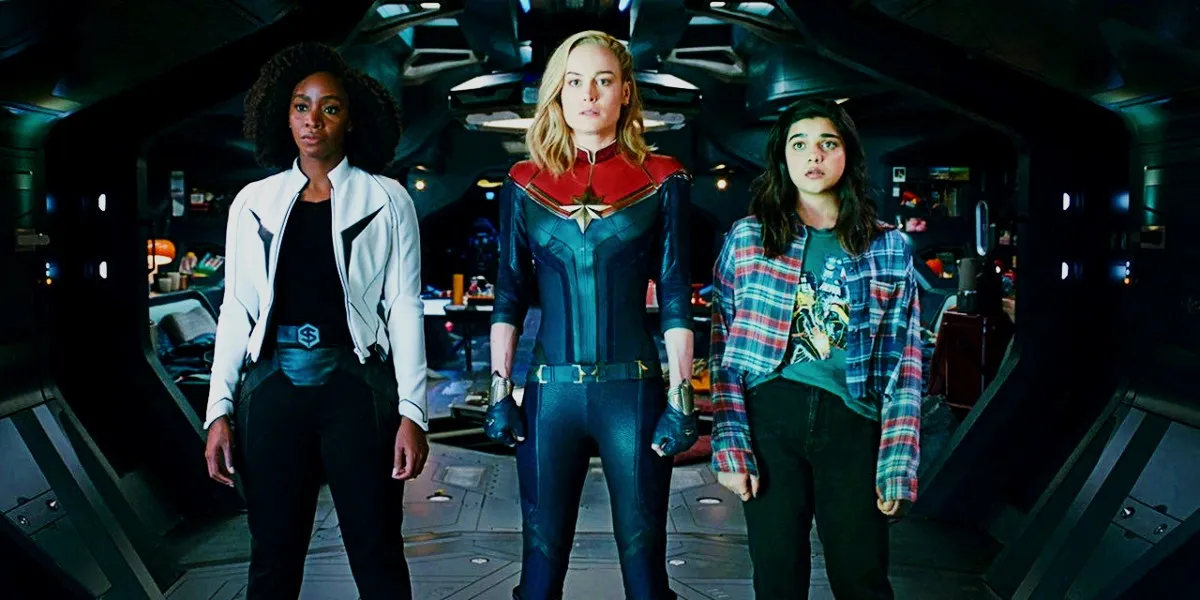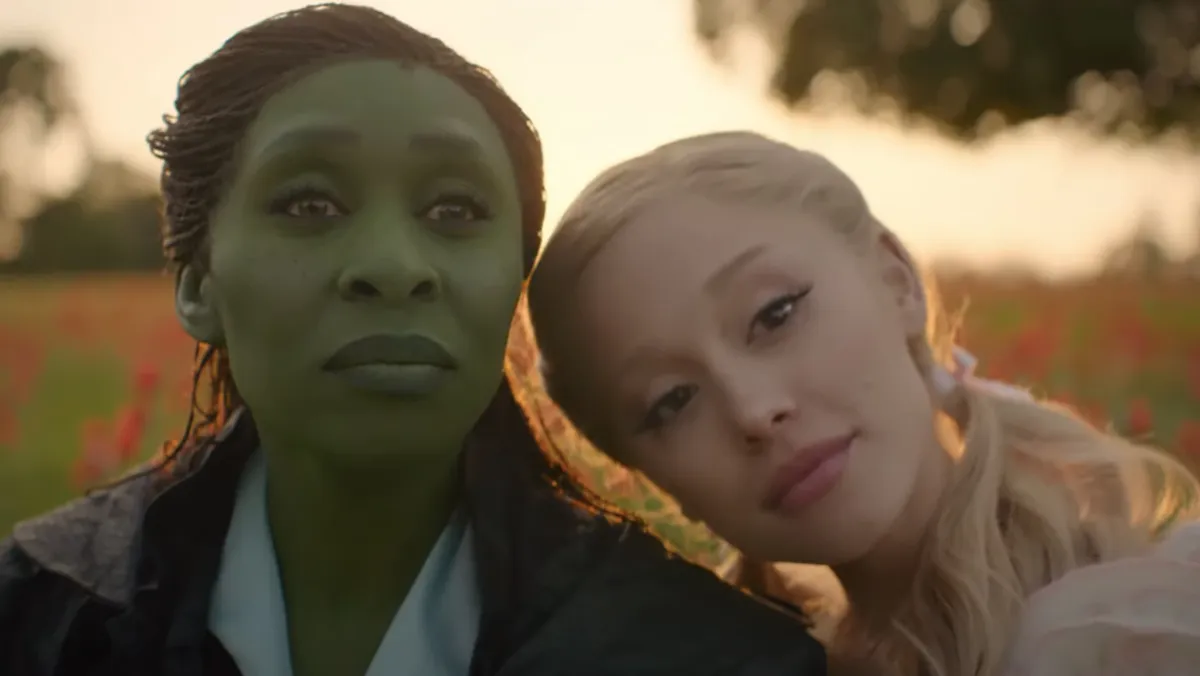The Marvels has been out on Disney+ for about two weeks now, meaning those of us without access to movie theaters have finally gotten the chance to witness what is perhaps the single most dastardly example of studio meddling from a franchise that’s already notorious for it.
Indeed, generally speaking, it’s important to gauge the effectiveness of a film as it’s ultimately presented, all without taking into account what might have gone on behind the scenes to explain/excuse anything. That simply cannot be done with The Marvels, a film that, despite being armed with the shortest runtime in MCU history, manages to find the time to show off how an exciting new filmmaker at the top of her game, Nia DaCosta (Candyman), is no match for the Marvel machine—a machine that not only disregards the nuances of its continuity as drastically as it worships the ground it walks on, but is all too ready to gut the potential of a project for the sake of moving on to the next one, or to allude to another one at some uncertain point in the future, or even just to give the illusion that some form of progress is being made.
What went wrong with The Marvels?
Before answering the question of what went wrong, it’s important to acknowledge went right: The chemistry between its three leads was nothing short of fantastic, and Nia DaCosta’s unbelievably refreshing perspective from the director’s chair could be felt in just about every scene. By all appearances, there’s no reason a downright excellent film shouldn’t have come out of this union.
The problem is that, under studio parameters, The Marvels was not only forced to try to have its cake and eat it too, but to simultaneously bake a brand new cake while making sure everyone got a slice, with equitable cake-to-frosting ratios on top of that.
What do I mean by that? One could start by pointing out how severely disconnected the film was from its own plot, which manifests in a number of ways, ranging from the Aladna sequences that blew right past comic book absurdity and landed harshly in the realm of uncanny parody, to the lack of any real significance in the film’s events despite textually reading as pretty catastrophic, to the tangential point that whenever the slightest bit of palpable tension began to bristle up between its characters, it was quickly resolved with a split-second apology before everyone flew back into the proverbial gauntlet.
But in digging a bit deeper, one starts to see the heart of The Marvels’ biggest problem and, by extension, that of the franchise’s current status as a whole: It’s in a state where each project is forced to be in service of a brand and continuity that the studio itself has repeatedly shown to be recklessly fickle about; did Marvel really believe that no one would raise an eyebrow if the Tarnaxian Skrull refugees were welcomed quite casually into New Asgard after Secret Invasion just happened?
Because what actually happened in The Marvels? What in The Marvels actually proved to be believably significant in the context of its own story—meaning what really happened outside of planting the seeds for the Young Avengers and roping Kelsey Grammar’s Beast into the franchise? You could maybe argue that Kamala learned a bit more about the realities of being a superhero and that Carol learned to forgive herself for her past, but both of those arcs—assuming you could even call them that—are so grossly rushed, in a film stuffed with a surplus of dubiously nutritious calories in a compacted runtime, that it becomes impossible not to critique the fact that this final product was signed off on.
What could The Marvels have done differently?
Honestly? Probably not a whole awful lot in our own universe; the fact that DaCosta managed to create what we got deserves applause of the highest order. Just for fun, though, let’s imagine a world where Marvel Studios hasn’t become a self-indulgent blight on the creative spirit for one moment, and see where that takes us.
For one, we probably should have gotten another dedicated Captain Marvel-centric movie before The Marvels, in which Carol properly contends with the fallout of her decision to destroy the Supreme Intelligence, as well as her abandoning of Monica and Maria out of her own guilt surrounding her mistake. This would have decluttered the space and allowed for Carol to incisively explore the theme of guilt in a profound way; maybe she realized there was potential for her to resurrect Hala’s sun all along, but she doesn’t have the confidence to do so nor the bravery to face Hala again with the risk of failing.
Further, maybe in trying to reconnect with and seek forgiveness/validation from Monica, the latter decides not to forgive her, leaving Carol with the task of manifesting that forgiveness from within herself—a task that she maybe ultimately doesn’t complete, which could reflect in her conflict with the villain she would face off against in this hypothetical movie (perhaps a better-written Dar-Benn).
Fast forward to The Marvels, which would involve Carol crashing down to Earth and being found by Kamala, whose love and admiration for Carol (one Carol never sought out, which is important) reminds her exactly what kind of hero and inspiration she’s capable of being, and she brings Kamala along to finish a job—one that ends with Carol fixing the sun and Kamala still gaining enough experience and confidence to seek out recruits for the Young Avengers. As for Kamala learning the harsher realities of heroism, that can wait for the Young Avengers project (and in this hypothetical universe, she’d learn that from a cynical Cassie Lang, who would have gotten the character arc she deserved in Quantumania).
But that’s all just a fun spitballing session. The point is, it’s high time that Marvel Studios remembered that they were at the top of their game during a time when each project served itself as a film, story, and vehicle for its characters instead of an overarching development that no one cares about right now. And with The Marvels being the latest victim of their current trajectory, and also the one that arguably suffered the most, I think it’s necessary to sound this gong with completely unreasonable gumption.
(featured image: Marvel Studios)










Published: Feb 20, 2024 11:19 am